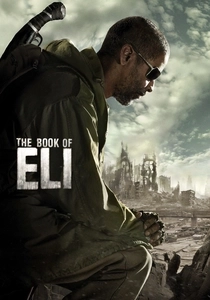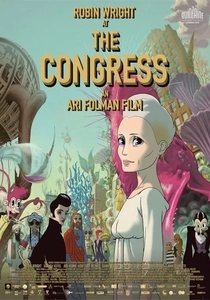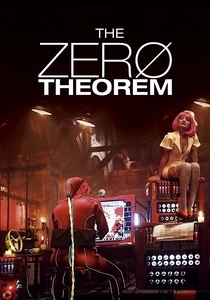Dive into a world where the boundaries of reality and fiction blur, where literature isn't just a source of inspiration but becomes a central theme in storytelling. This curated list of 10 sci-fi films explores the intersection of literature and science fiction, offering viewers a unique blend of intellectual stimulation and imaginative escapism. From time-traveling authors to books that come alive, these films celebrate the power of the written word in ways that are both thought-provoking and visually spectacular.

The Neverending Story (1984)
Description: This film adaptation of Michael Ende's novel follows a boy who discovers a magical book that transports him into the world of Fantasia, where he must save the land from destruction. It's a testament to the escapism and wonder that literature can provide.
Fact: The film's iconic theme song, "The NeverEnding Story," was performed by Limahl and became a hit in several countries.
 Watch Now
Watch Now 
The Princess Bride (1987)
Description: While primarily a fantasy adventure, this film is framed as a story being read to a sick boy by his grandfather, making it a celebration of storytelling and the magic of literature to transport us to other worlds.
Fact: The film has gained a cult following and is often cited as one of the greatest love stories in cinema.
 Watch Now
Watch Now 
The Time Machine (2002)
Description: This adaptation of H.G. Wells' classic novel follows an inventor who travels through time to find his lost love, encountering various civilizations along the way. The film's narrative is deeply rooted in the concept of literature as a time capsule, preserving and exploring human history and future.
Fact: The film features a cameo by the great-grandson of H.G. Wells, Simon Wells, who also directed the movie.
 Watch Now
Watch Now 
Stranger Than Fiction (2006)
Description: Will Ferrell stars as an IRS agent who starts hearing a voice narrating his life, only to discover he's a character in a novel. This film explores the meta-narrative of literature influencing real life, blending comedy with existential questions.
Fact: The film was nominated for a Golden Globe for Best Motion Picture - Musical or Comedy.
 Watch Now
Watch Now 
Inkheart (2008)
Description: Based on Cornelia Funke's novel, this film tells the story of a man who can bring characters from books to life when he reads aloud, but with every character brought to life, someone from the real world disappears into the book. It's a magical exploration of the power of literature to shape reality.
Fact: The film features a diverse cast including Brendan Fraser, Helen Mirren, and Paul Bettany, with Bettany playing a villainous character from a book.
 Watch Now
Watch Now 
The Book of Eli (2010)
Description: In a post-apocalyptic world, a lone wanderer carries a mysterious book that holds the key to humanity's survival. This film delves into the theme of literature as a beacon of hope and knowledge in a world stripped of civilization.
Fact: The book in the film is never explicitly named, but it's heavily implied to be the Bible.
 Watch Now
Watch Now 
The Adjustment Bureau (2011)
Description: Based on a Philip K. Dick short story, this film follows a man who discovers that his life is being controlled by a mysterious group, leading him to question fate, free will, and the role of literature in shaping destiny.
Fact: The film's title refers to the organization that controls human lives, which is inspired by Dick's fascination with the idea of predestination.
 Watch Now
Watch Now 
The Congress (2013)
Description: This animated/live-action hybrid film explores the future of cinema and literature, where an actress sells her digital likeness to a studio, leading to a surreal exploration of identity and creativity in a world dominated by virtual reality.
Fact: The film is loosely based on Stanislaw Lem's novel "The Futurological Congress."
 Watch Now
Watch Now 
The Words (2012)
Description: This film tells the story of a writer who achieves fame by plagiarizing a lost manuscript, exploring themes of literary theft, authenticity, and the moral implications of using someone else's words.
Fact: The film features a complex narrative structure with stories within stories, reflecting the layers of literary creation.
 Watch Now
Watch Now 
The Zero Theorem (2013)
Description: Terry Gilliam's film features a reclusive computer programmer who is tasked with proving the "Zero Theorem," a mathematical equation that could prove life is meaningless. The film uses literature as a metaphor for the search for meaning in an increasingly digital world.
Fact: The film's script was written by Pat Rushin, who won the 2009 PAGE International Screenwriting Awards.
 Watch Now
Watch Now 








